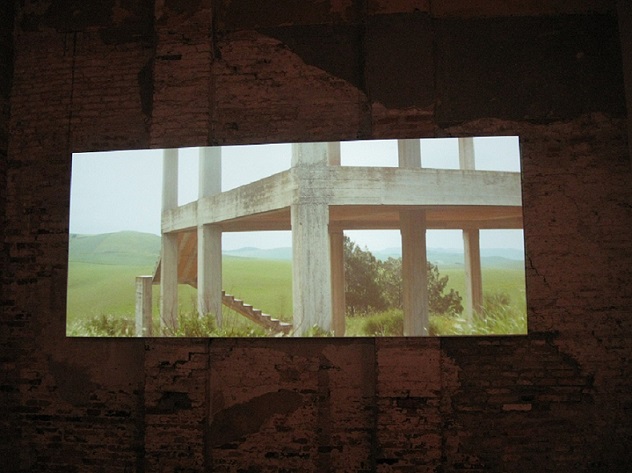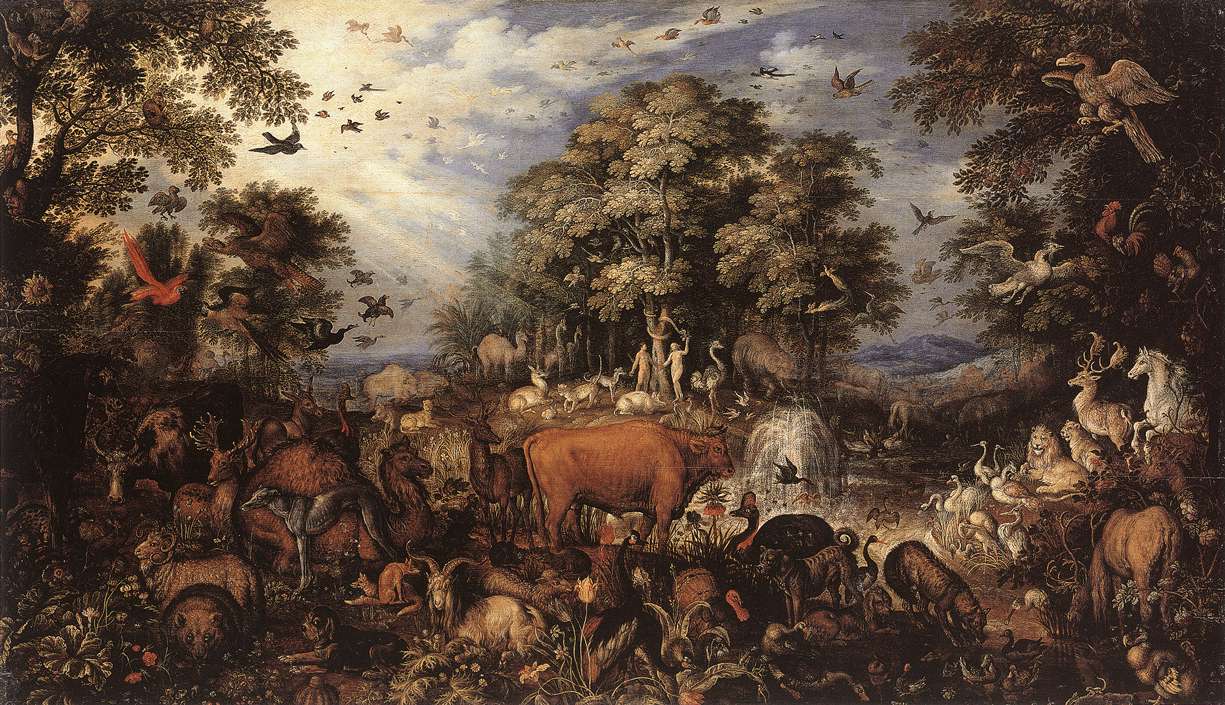China and the Great War Symposium
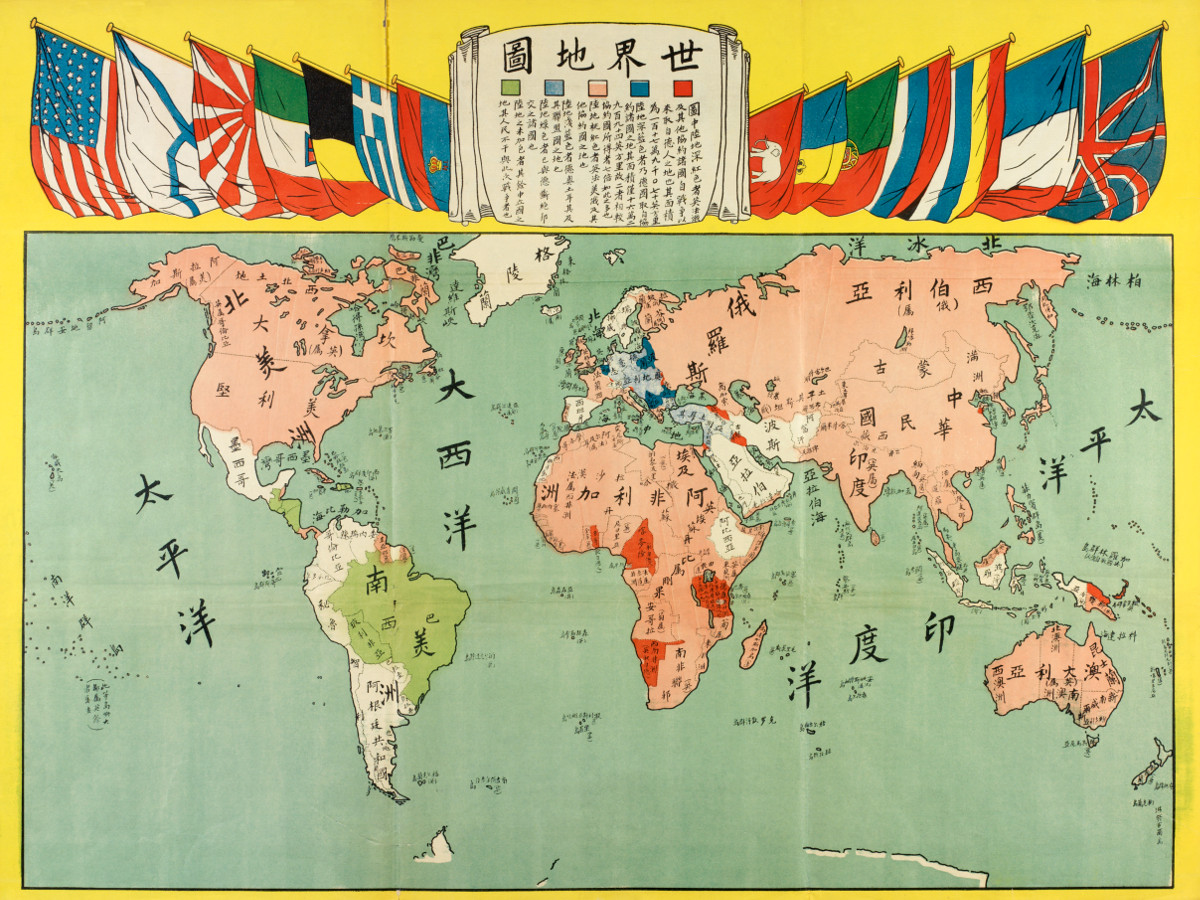
China and the Great War: A Symposium
Wednesday 4th May 2016, 9.00 – 17.00
Imperial War Museum, Lambeth Road, London SE1 6HZ
Organised by the Department of English, Linguistics and Cultural Studies and the Institute for Modern and Contemporary Culture at the University of Westminster
China’s participation in the First World War was a defining moment in modern Chinese and world history and the beginning of China’s journey toward internationalization. This symposium intends to extend the dimensions of our collective memory of the war along with investigations of the significance of the war to China’s subsequent role in international relations. Held on May Fourth, the date of the symposium commemorates the May Fourth Revolution which followed China’s betrayal at the Paris Peace Conference of 1919. A panel of leading international scholars, archivists, and community activists will address the ways in which World War I played a substantial role in shaping China’s 20th-century trajectory.
The symposium will also mark the forgotten contribution of the Chinese Labour Corps and the work they did behind the lines on the Western Front. China’s role in the First World War has been a curiously neglected topic. The symposium will participate in the endeavours of the Chinese community in Britain to create a memorial in London to the Chinese Labour Corps.
Further details and tickets here.
Sean O’Casey and the Easter Rising, Weds 17th February
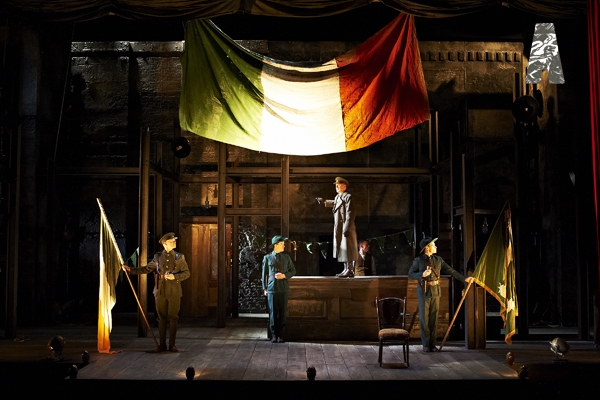
Wednesday 17 February, 5pm
Room 105, University of Westminster, 32-38 Wells Street, London W1T 3UW
‘Sean O’Casey and the Easter Rising’
Professor James Moran (Nottingham), with a response by Matthew Morrison
Spring 2016 marks the 100th anniversary of the Easter Rising in Dublin. The event will be commemorated at the National Theatre of Ireland with a production of Sean O’Casey play The Plough and the Stars and, from July, a separate production at the Royal National Theatre in London. What is the relationship of O’Casey’s play to the events of 1916? The talk explores how the insurrections was itself crafted by dramatists, with rebel leaders Thomas MacDonagh, Patrick Pearse and James Connolly all rehearsing aspects of the rising in the playhouse before they took on the British army in the streets of Dublin. It will show how O’Casey’s The Plough and the Stars subsequently sought to contradict the political and dramaturgical choices of those Easter rebels, but reveal that O’Casey’s writings also contain a number of endorsements of the insurgent point of view.
Special Lecture: Exhibiting the Medium Formerly Known as Photography, Feb 19th
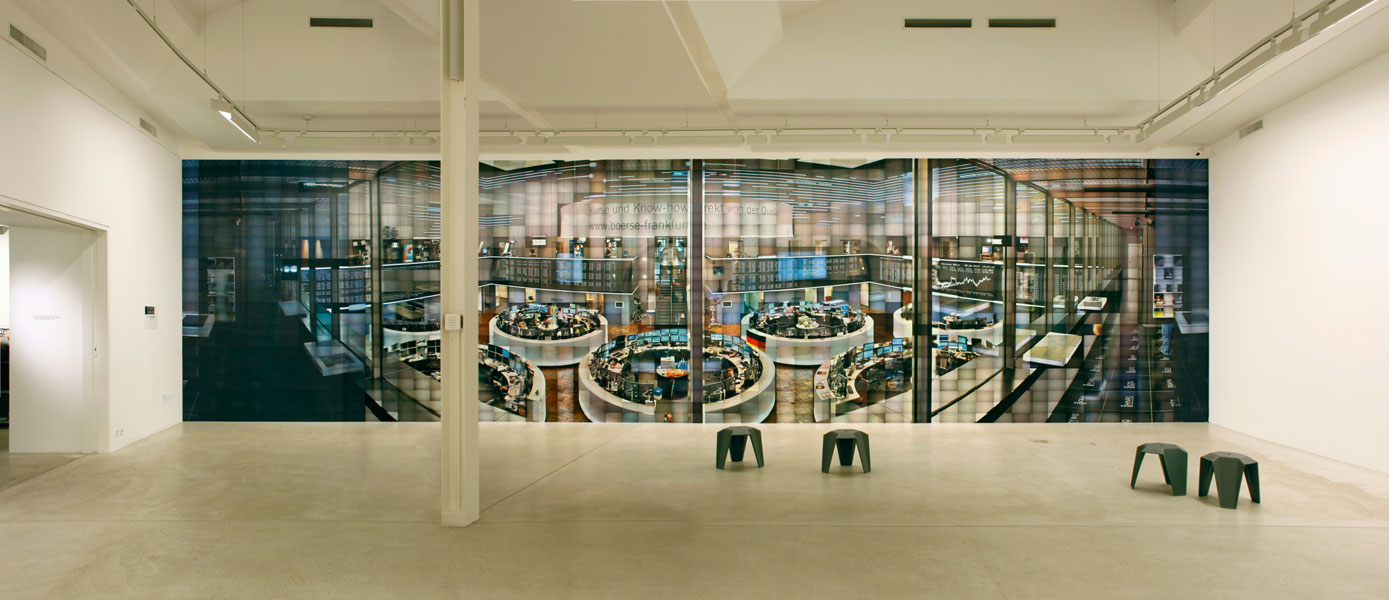
Friday 19th February 2016, 6.00 pm
Fyvie Hall, University of Westminster, 309 Regent Street, London W1T
“Exhibiting the Medium Formerly Known as Photography”
Duncan Forbes and Peter Cornwell
The last decade has witnessed dramatic changes in the exhibition of photography in response to the rise of so-called post-photography and the distributed or transitive nature of photographic media. The idea of photography as one medium is increasingly impossible to sustain, as images flood across different platforms, obliterating the distinction between still and moving media and offering new modes of reception and creative interaction. Nowadays the photograph is as much data as it is aesthetic or narrative, forging a paradigm of algorithmic vision. What does it mean for photography and its audiences when the traffic in photographs is transformed by global networks and the processing of big data?
Taking Fotomuseum Winterthur as a case study, this special lecture explores what these changes mean for curatorial practice and the institution of the photography museum.
Entry free of charge, please book here: http://www.eventbrite.com/e/exhibiting-the-medium-formerly-known-as-photography-tickets-21384410347 if you are not registered at the University of Westminster.
Duncan Forbes is Director and Curator of Fotomuseum Winterthur. He was previously Senior Curator of Photography at the National Galleries of Scotland. Recent collaborative curatorial and publishing projects include Provoke: Between Protest and Performance – Japanese Photography 1960-1975 (Steidl, 2016), Beastly/Tierisch (Spector Books, 2015), Manifeste! Eine andere Geschichte der Fotografie (Steidl, 2014) and Edith Tudor-Hart: In the Shadow of Tyranny (Hatje Cantz, 2013).
Peter Cornwell is Director of the Data Futures project in the Institute for Modern and Contemporary Culture at Westminster. He has previously been Director of European Research for Texas Instruments Inc., Professor of Public Art at Central Saint Martins and Director of the Institute of Visual Media, ZKM.
Space, Data & Abstraction, RCA, Feb 16th
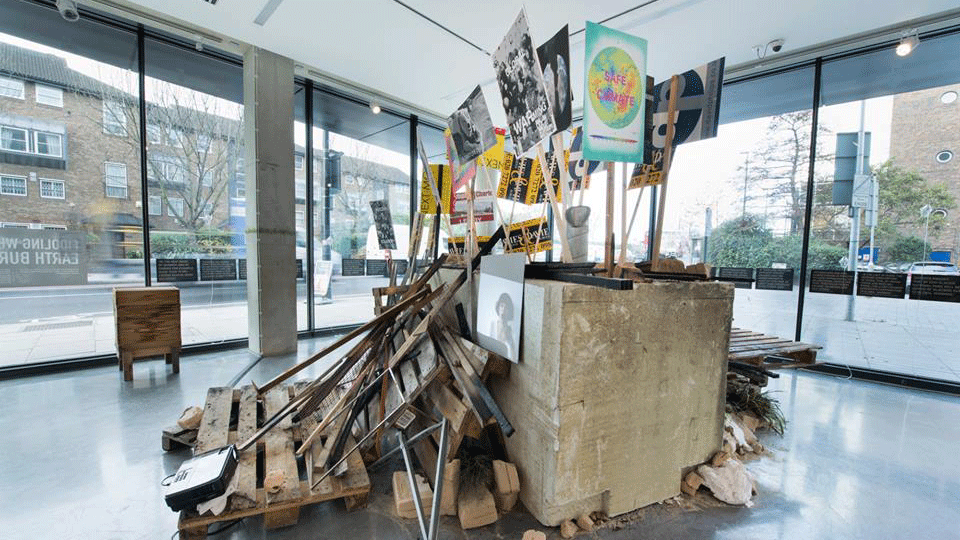
Tuesday 16th February 2016, 6.30-8.00 pm
Gorvy Lecture Theatre, Royal College of Art, 1 Hester Road, RCA Dyson Building, London SW11
RCA Visual Cultures Lecture Series 2015/16: Space, Data & Abstraction
The IMCC’s David Cunningham will be speaking alongside Adrian Lahoud, Dean of the School of Architecture, as part of the RCA’s current Visual Cultures Lecture Series, presenting recent research and discussing Space, Data & Abstraction. The conversation will be chaired by Jaspar Joseph-Lester, Research Tutor and Reader in Fine Art (Art, Urbanism and the Moving Image) at the RCA School of Fine Art.
Further details on the lecture series, which also includes contributions from Catherine David, Richard Sennett, Jonas Staal and Marina Warner, are available here.
The lecture is free and open to all – it will be live broadcast by this is tomorrow
Queer London Research Forum: Second Annual Queer Literature Event
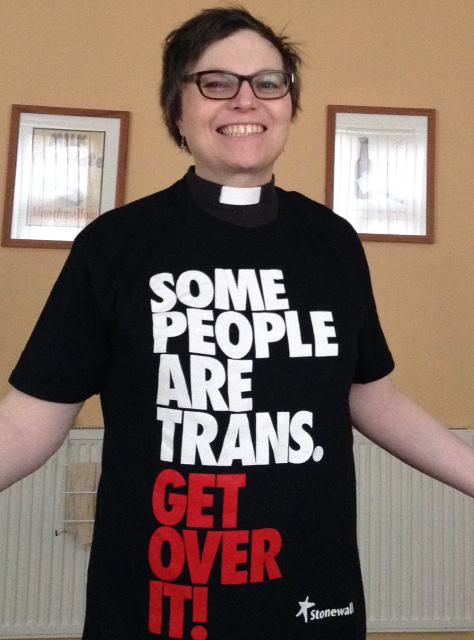
Monday 8th February 2016
University of Westminster, 309 Regent Street, London W1T
Queer London Research Forum: Second Annual Queer Literature Event
As part of LGBT History Month, the Queer London Research Forum at the University of Westminster is pleased to be hosting its second annual Queer Literature event. This year our speakers will be Rachel Mann and Roz Kaveney, who will both read from their work and take questions from the audience. The event will be followed by a wine reception.
Rachel Mann is an Anglican priest, poet and queer theologian based in South Manchester. She is transgender and the author of three books, including an autobiography, Dazzling Darkness. Her poetry covers themes of gender, sexuality and faith. Rachel is currently Resident Poet at Manchester Cathedral.
Roz Kaveney is a poet, novelist, activist and cultural commentator. Her books include Reading the Vampire Slayer, the Lambda short-listed poetry collection Dialectic of the Flesh, and the novel Tiny Pieces of Skull, which the TLS called ‘a seminal fiction work on transgender identity and transphobia’.
The event is free and can be booked online through Eventbrite.
Call for Papers: “Image and Text, or, Image as Text”, May 12th
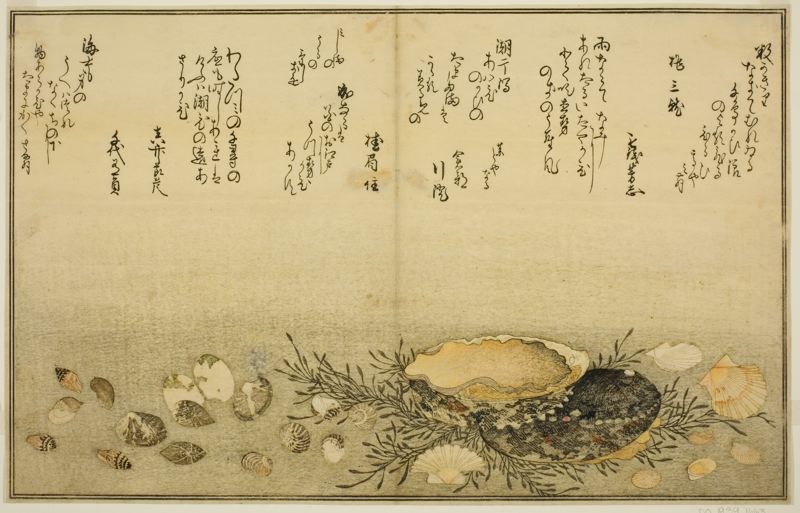
Call for Papers: “Image and Text, or, Image as Text”
Thursday 12th May 2016, University of Westminster, London
The image/text relationship is perhaps one of the most significant fields of current academic study since constructions of text and the image, the modes of reading and seeing dependent on these constructions and the relationships between each of them play an important role in the control of human perception and knowledge, and the limits and constraints that they are based upon. With the telecommunications revolution and changes in popular reading habits the boundaries between image and text are becoming increasingly blurred. This interdisciplinary conference offers a unique opportunity to explore the image/text interaction from a variety of perspectives, including literary studies, visual culture and cultural studies, photography and art history.
Topics might include, but are not limited to: the inclusion of words in Western art or calligraphy and the calligraphic art of the East and Arabic worlds; illustration as readings of writing, e.g. children’s illustration; ekphrasis, or descriptions of images in writing; adaptations of writing in the cinematic or televisual image; illustration, photography and their relationship to scientific writing and the encyclopaedia; non-standard typographic representations in literature.
Although all are welcome and encouraged to come and take part, the conference is mainly targeted at PhD researchers and Early Career Researchers and aims to offer a friendly, inter-disciplinary space for the dissemination of ideas amongst researchers with a shared interest.
Prospective authors are invited to submit a 200-word abstract to suneel.mehmi@my.westminster.ac.uk
The deadline for submission is Friday 8th April 2016. Successful candidates will be selected by the hosting committee.
Experimental Writing @ Carroll / Fletcher: Nick Montfort with Manfred Mohr
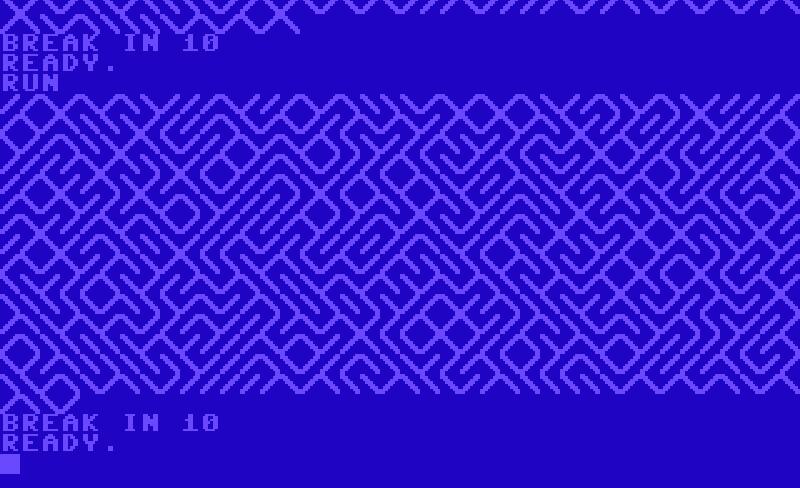
Friday, 12 February 2016, 7pm
Carroll/Fletcher, 56-57 Eastcastle Street, London, W1W 8EQ
Experimental Writing @ Carroll / Fletcher: Nick Montfort with Manfred Mohr
£5; tickets available here
Nick Montfort, a poet and artist working with computer-generated texts, will read from a selection of his works, including #! (Counterpath Press, 2015) and the forthcoming 2×6 (Les Figues, 2016). In addition, he will present some of his recent Commodore 64 visual poems, and discuss code-generated poetry, as well as broader questions of computation, language and creativity.
The reading will be followed by a conversation between Nick, digital art pioneer Manfred Mohr, and writer and academic Matthew Fuller.
This is the first event in the Experimental Writing @ Carroll/Fletcher series. Organised by the Institute for Modern and Contemporary Culture at University of Westminster and Carroll/Fletcher, the series showcases contemporary developments in experimental writing and their relationship to the visual arts.
Nick Montfort develops computational art and poetry, often collaboratively, and works as an Associate Professor of Digital Media at the Massachusetts Institute of Technology (MIT), where he also runs The Trope Tank, a DIY, boundary-transgressing MIT research lab hosting both academic and creative projects. Montfort holds a Ph.D. in Computer and Information Science from the University of Pennsylvania, a Masters in Creative Writing (poetry) from Boston University and a Masters in Media Arts and Sciences from MIT. He has been one of the key figures behind the development of platform studies, critical code studies, and electronic literature. His works have been translated into half a dozen languages and served as a basis for numerous remixes.
#! (Counterpath, 2014; the title is pronounced “shebang”) is Montfort’s latest book, and contains programs and poems. Forthcoming in 2016 is Montfort’s Exploratory Programming for the Arts and Humanities (MIT Press), which continues his long-term project to teach programming as a method of culturally engaged inquiry and making. Also coming in 2016 is 2×6 (Les Figues), a book of computer-generated poems created in collaboration with six others, in English and five other languages.
Manfred Mohr lives and works in NYC. He is a pioneer of digital art and one of the very first artists to produce drawings, paintings and sculptures using a computer. Mohr originally trained as a painter, and has made rigorously minimal, geometric paintings and drawings since the late 1950s, informed by Abstract Expressionism. He has been experimenting with algorithms and formal constraints since the 1960s, developing what he called a ‘programmed aesthetic’ inspired by philosopher Max Bense’s thinking that a ‘clear and logical’ form of art making was possible – and indeed desirable. These first experiments set Mohr on a path that he has followed to this day, despite the art world’s resistance to the idea of the computer as a legitimate art medium.
Selected solo exhibitions include Artificiata II, bitforms, New York (2015); The Algorithm of Manfred Mohr. 1963−now, ZKM – Media Museum, Karlsruhe (2013); one and zero, Carroll / Fletcher, London (2012); Kunsthalle Bremen (2007) and the Musée d’Art Moderne de la ville de Paris (1971). He has exhibited in group shows at prestigious institutions including the National Museum of Modern Art, Tokyo (1984); Museum of Modern Art, New York (1980); and Centre Pompidou, Paris (1978, 1992). His work is held in major international institutions and private collections including the Victoria and Albert Museum, London; Centre Pompidou, Paris; Museum Ludwig, Cologne; Musée d’Art Contemporain, Montreal; and Borusan Art Collection, Istanbul.
Matthew Fuller’s books include ‘Media Ecologies, materialist energies in art and technoculture’, (MIT) ‘Behind the Blip, essays on the culture of software’ and ‘Elephant & Castle’. (both Autonomedia) With Usman Haque, he is co-author of ‘Urban Versioning System v1.0’ (ALNY) and with Andrew Goffey, of ‘Evil Media’. (MIT) Editor of ‘Software Studies, a lexicon’, (MIT) and co-editor of of the Journal Computational Culture, he is involved in a number of projects in art, media and software and is Professor at the Centre for Cultural Studies, Goldsmiths, University of London.
For more information, please contact either Kaja Marczewska at k.marczewska@westminster.ac.uk or Asya Bachelis at asya@carrollfletcher.com
Georgina Colby on Kathy Acker
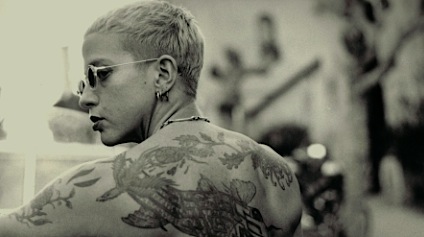
Wednesday 3 February, 5pm
Room 105, University of Westminster, 32-38 Wells Street, London W1T 3UW
‘Writing-Through’: Kathy Acker’s Don Quixote: Which Was a Dream
Georgina Colby (Westminster), with a response by Leigh Wilson
This paper reads Kathy Acker’s Don Quixote: Which Was a Dream as a form of non-procedural ‘writing-through’, a term that has its roots in the procedural practices of John Cage and Jackson Mac Low. In Don Quixote Acker’s experimental practice displaces centralized narrative, to offer a new feminist temporality. Reading the work with attention to Acker’s practice of abstraction, experimentation with translation, paragrammatic play, and the protosemantic, a method of writing-through emerges whereby voice is imbricated with the negation of language.
All welcome and entrance free. Non-Westminster guests can sign in at reception.
Caygill on Kafka’s Genealogy of the Official
Wednesday 20th January, 6pm (please note later start time)
Room 105, University of Westminster, 32-38 Wells Street, London W1T 3UW
Kafka’s Genealogy of the Official
Howard Caygill (Kingston), with a response by academic and novelist Michael Nath
Approaching Kafka’s work via the pivotal theme of the accident – understood both philosophically and in a broader cultural context, including the sociological basis of accident insurance and the concepts of chance and necessity – provides a radical new way of reading Kafka. Instead of a narration of domination, Kafka’s work is best read as a narration of defiance, one which affirms (often comically) the role of error and contingency in historical struggle. Stressing the role of contingency in his authorship and reception also challenges many of the assumptions, misguided presuppositions and even legends that have surrounded the legacy and reception of Franz Kafka’s work during the 20th century, including the view of Kafka’s work as ‘kafkaesque’.
All welcome and entrance free. Non-Westminster guests can sign in at reception.
Film Matters 2016
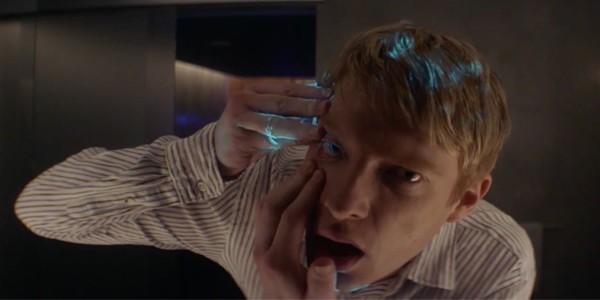
A new series of Film Matters screenings organised by the Centre for Law, Society and Popular Culture at the University of Westminster has just been announced. This year the films chosen relate to the concept of ‘change’.
First up are two films, Ex Machina and A.I. , relating to recent developments in Artificial Intelligence, forming part of the Law and Artificial Intelligence Series, the first event of which took place in October 2015. This is followed by a screening of The Imitation Game, introduced by Writer in Residence at Westminster, Mike Garry, who is currently collaborating with composer Philip Glass on a project based on the life of Alan Turing. Finally, in support of National Stroke Awareness Month, there will be screening of The Possibilities are Endless which documents the impact of the stroke suffered by musician Edwyn Collins.
Download the Film Matters 2016 season poster (PDF format).
These events are free and everyone is welcome, please register online.
Decades of Contemporary British Fiction
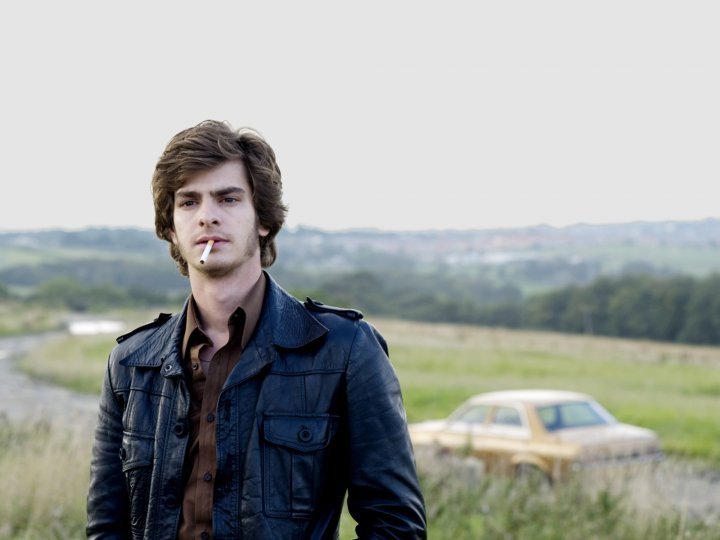
The four-volume series Decades of Contemporary British Fiction: The 1970s to 2000s, co-edited by our own Leigh Wilson with Nick Hubble and Philip Tew, is out now from Bloomsbury. 10% discount if you order all four here.
As well as editing co-editing three of the volumes, Leigh has also contributed an excellent essay to the 2000s collection on ‘the historical novel and the crisis of fictionality in the first decade of the twenty-first century’.
From Peter Pan to Lady Precious Stream seminar
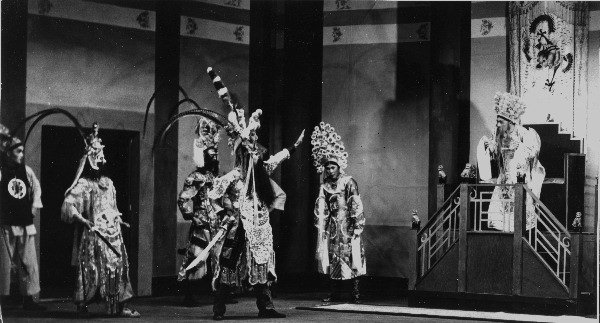
Wednesday 20th January 2016, 6.30-8.00 pm
Room UG04, University of Westminster, 309 Regent Street, London
Diana Yeh (City University, London)
From Peter Pan to Lady Precious Stream
An illustrated talk by Diana Yeh on a famous Chinese artistic couple who hit the London theatre stage in the 1930s with the play, Lady Precious Stream. A short film of this play will be shown. Organised by our colleagues in Modern Languages and Culture, in collaboration with the Meridian Society and the Department of English, Linguistics and Cultural Studies at Westminster.
Shi-I Hsiung translated several English novels and plays into Chinese, including Bernard Shaw’s Man and Superman and James Barrie’s Peter Pan. When he came to London, he adapted the Chinese Beijing opera Wang Baochuan into Lady Precious Stream, a modern Chinese drama in English which hit the London stage – the Little Theatre in the Adelphi – in November 1934. It was so successful and popular that it went on to be performed in other theatres nationwide and in other countries, including the USA, starting in Broadway, New York. Royalty and celebrities went to see the productions and the Hsiungs were feted as celebrities too. Diana Yeh tells the story of the Hsiungs and analyses their role as representatives of the new, modern Chinese cultural élite who brought Chinese culture to the West and introduced English culture to China during this period. She analyses their contribution and reception within the context of the contemporary images of China and the Chinese (‘John Chinaman’ and ‘Fu Manchu’) and the changing political and social circumstances leading up to World War II.
The event is free and open to the public. Non-University of Westminster attendees please register with Cangbai Wang by emailing c.wang6@westminster.ac.uk
Floating Points at Ambika P3
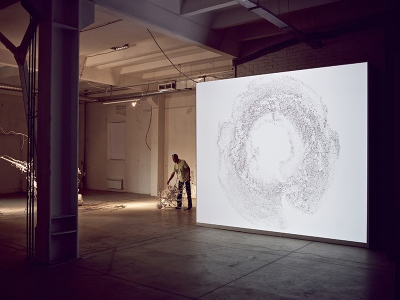
FLOATING POINTS
Gavin Baily, Tom Corby
Ambika P3, University of Westminster, 35 Marylebone Road, London NW1 5LS
Exhibition Opening hours: Saturday 19th Dec – Monday 21 Dec, 12.00-6.00
Private view: 6.00 pm Friday 18th December
A new exhibition by Gavin Baily and Tom Corby consisting of 3 screen-based projects and an installation set within P3’s underground galleries. The Northern Polar Studies (2015) and Minima, Maxima (2015) are premiered, while The Southern Ocean Studies (in collaboration with Dr Jonathan Mackenzie 2010), and Cyclone (2005 – 2015) are uniquely shown together for the first time. All 4 works employ various forms of climate or meteorological data to visually and physically condense the aleatory, hidden and the systemic aspects of sites and landscapes as large-scale data animation or installation.
Art has long found ways to make tangible the Earth’s exhalation of atmospheres and climates. This exhibition can be seen as part of this tradition, but breaks from it by bringing contemporary scientific technologies, data and institutions to bear to show how universal concepts of human relations with landscape are still pertinent in a contemporary context of accelerating climate change. Additionally, the complex entanglements of the social, material, atmospheric and geographic explored throughout these works, extend our feel for landscape and also our sense of how time functions in it. Landscape through its laminations, layering and morphologies, is conceived in this work as a recording device that tracks the Earth’s changing energy signatures. This movement of time and matter reimagines environmental terrains as extended temporal forms resultant from long-term changes; which we might propose of as ‘deep time landscapes’.
http://digital-realism.net/296-2/
Exhibiting the Medium Formally Known as Photography at ZHdK
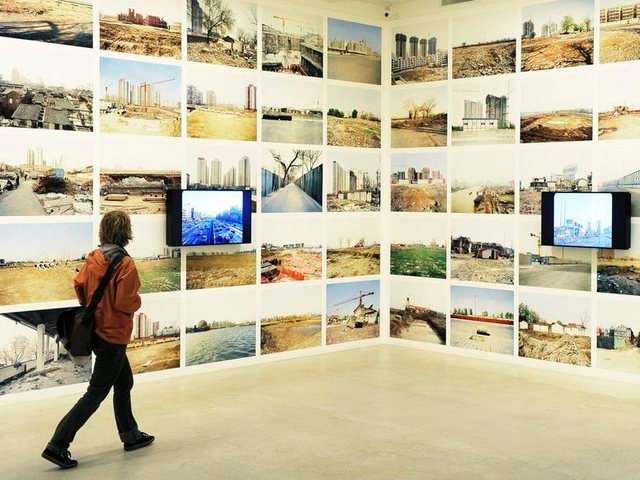
For any Swiss readers: Peter Cornwell, Director of the Data Futures project based in the IMCC, is giving a lecture this evening (Friday 11th December) with Duncan Forbes, Director and Curator of Fotomuseum Winthertur, on “Exhibiting the Medium Formally Known as Photography”.
The talk is at ZHdK (the Zurich University of the Arts) at 6.00 pm in room 6.K04.
The last decade has witnessed dramatic changes in the exhibition of photography in response to the rise of so-called post-photography and the distributed or transitive nature of photographic media. The idea of photography as one medium is increasingly impossible to sustain, as images flood across different platforms, combining still and moving forms, and offering new modes of reception and creative interaction. Nowadays the photograph is as much data as it is aesthetic or narrative, forging a new paradigm of algorithmic vision. What does it mean for photography and its audiences when the ‘traffic in photographs’ is transformed by global networks and the management of big data?
Taking Fotomuseum Winterthur as a case study, this lecture explores what these changes mean for curatorial practice and the institution of the photography museum. What would a post-photographic exhibition programme look like and what are the challenges of installation and interpretation? How should a photography museum position itself today, in relation to both physical and virtual audiences? What does it mean for the infrastructure of the museum as online platforms and retina displays proliferate and preservation-quality digitization becomes the norm? Is the institutional production of algorithmic vision sustainable and what are the creative possibilities? And what does a culture of ubiquitous, and sometimes disorienting, change mean for the staging of the history of photography?
New article by Sara Dominici on Tourist Photographers at the Poly
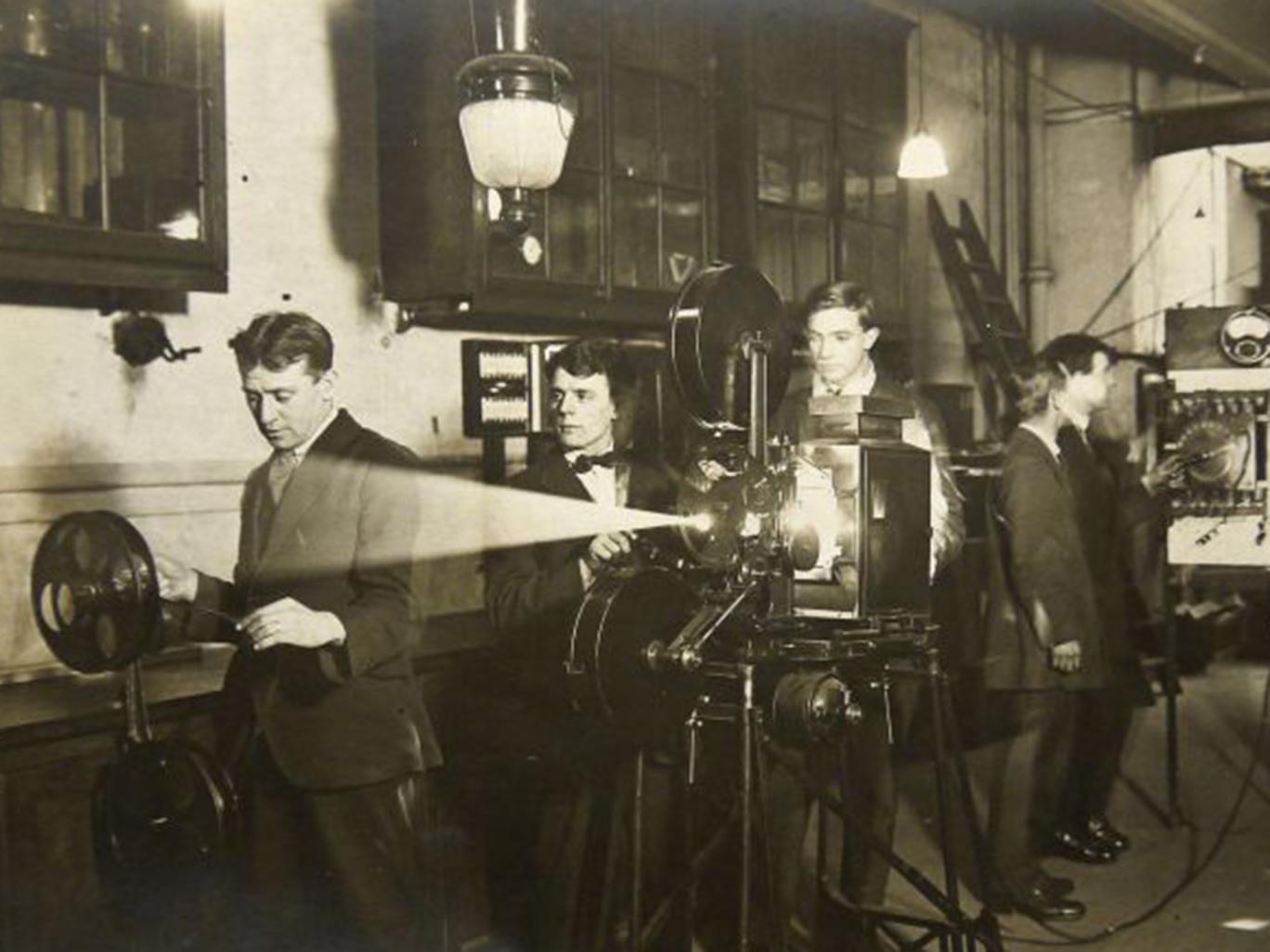
We’re pleased to announce that a new article by Sara Dominici, Post-Doctoral Fellow in the IMCC, has just appeared in the journal Photography and Culture. Entitled ‘Tourist Photographers and the Promotion of Travel: The Polytechnic Touring Association 1888-1939’, the article traces the ways in which the PTA’s passage from viewing tourists as citizens to educate, to customers to please, paralleled the move from using photography-based images to mixed media. While such a development was certainly a response to unprecedented market demands, Dominici argues that it should also be considered in relation to the widening of photographic perceptions engendered by the democratization of the medium, to which the PTA responded, first as educator, then as service provider. In doing so, the article raises several questions about the shifting relationship between “high,” or established, and “low,” or emerging, forms of culture, as mass photography and the mass marketing of tourism developed.
You can find Sara’s article here.
In Process opening
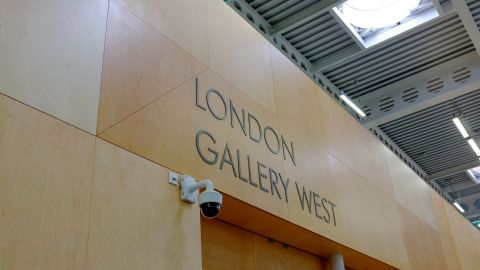
In Process Private view
Thursday 10 December, 6.00 pm
Gallery West – Project Space, University of Westminster, Harrow Campus
In Process (2015) is the inaugural exhibition from the Centre for Research and Education in Art and Media (CREAM) doctoral caucus based at the University of Westminster, including work by our own Steve Smith. The exhibition is a showcase of the various vibrant strands of interdisciplinary research being undertaken at the university. The focus is on modes in which CREAM students further practice-based modes of inquiry as means of art-making and producing contributions to knowledge and contributions to experience. Students undertaking principally theoretical research will also present elements of their research using practical modes. The exhibition will present work from ten doctoral students in the Project Space of Gallery West, and will be paralleled by a programme of film showings and performances.
Estéfani Bouza, Cinzia Cremona, Sue Goldschmidt, Alexandra Jönsson, Mirko Nikolić, Fathima Nizaruddin, Alexa Raisbeck, Bhavna Rajpal, Arne Sjögren, Steve Smith.
University of Westminster, Watford Road, Harrow, Middlesex HA1 3TP
Nearest Tube station: Northwick Park (Metropolitan line)
10 December 2015 – 8 January 2016
Opening times: 10am – 10 pm daily
Further details: www.westminster.ac.uk/inprocess
‘Take this Instant’: Sacrifice, Testimony and the Gift of My Death
Wednesday 9 December, 5pm
Room 105, University of Westminster, 32-38 Wells Street, London W1T 3UW
‘Take this Instant’: Sacrifice, Testimony and the Gift of My Death
Shela Sheikh (Goldsmiths), with a response by Elinor Taylor
In Aporias: Dying—Awaiting (One Another at) the “Limits of Truth”, Jacques Derrida poses the question: ‘My death—is it possible?’ How is this question to be understood, and who can pose it? And if my death is properly mine, how am I to account for—in fact, to give an account of—this? This paper responds to these questions by turning to accounts of both being-towards and surviving death in Maurice Blanchot’s fictional/autobiographical récit, ‘The Instant of my Death’, but also the phenomenon of pre-recorded video-testimonies in which the subject announces his/her own death, and does so from a temporality that is at once past, present and futural. Through a reading of technically-mediated performances of accounting for and bearing witness to one’s ‘own’ death—and with this a consideration of the logic of sacrifice, radical passivity, the gift of death, and the contemporary conjunction between religion, geopolitical conflict and media—Sheikh proposes that such accounts bears witness to what Derrida identifies as the anachronistic ‘history of death’ in the Christian West, before supplementing this focus on the West with further consideration of what Nelson Maldonado-Torres names ‘the coloniality of being’.
All welcome and entrance free. Non-Westminster guests can sign in at reception.
Followed by drinks in the Green Man…
Culture, Memory & Extinction
11 December 2015, 9.00am-5.00pm
Natural History Museum, London
Recent months have seen an explosion of public, media and academic interest in the idea, threat and reality of extinction. This acknowledgement has contributed to debates over climate change and other, related, ways that humanity has altered environments and ecosystems in this epoch we have begun to call the Anthropocene. This one-day conference asks what role can culture play in widening the understanding, representation and, indeed, remembrance of this unfolding and catastrophic species loss. With this in mind, the event aims to foster dialogue between academics, journalists, museum curators, charities, writers, environmental groups, and the media to explore how societies engage with the complexities of the processes of extinction and remember the extinct. More specifically, the event examines how increased dialogue between these communities and constituencies contributes to the public re-evaluation and remembrance of life on our planet.
Speakers:
Dan Barnard & Rachel Briscoe. Lead Artists, fanSHEN Environmental Theatre Collective.
Fae Brauer. Professor of Art and Visual Culture, University of East London.
Sbastian Brooke. Director, MEMO (Mass Extinction Monitoring Observatory).
Melanie Challenger. Author, On Extinction.
Cathy Dean. Director, Save the Rhino.
Sebastian Groes. English and Creative Writing, Roehampton University.
Steve Parker. Author, Extinction: Not the End of the World?.
Jules Pretty. Professor of Environment and Society, University of Essex.
Bernd Scherer. Director, Haus der Kulturen der Welt, Berlin.
Matt Williams. Associate Director, A Focus on Nature.
Matthew Wills. Biodiversity Lab, University of Bath.
Free tickets: register at https://www.eventbrite.co.uk/e/culture-memory-and-extinction-tickets-19379987063
Website: https://naturalhistoryofmemory.wordpress.com/london-2015/
Email: memoryandextinction@gmail.com
Organised by The Natural History of Memory: Dr Lucy Bond (Westminster), Dr Rick Crownshaw (Goldsmiths), Dr Jessica Rapson (King’s College London); Research assistant: Ifor Duncan (Goldsmiths).
Inventing Maps: Towards a Geography of the Avant-Garde
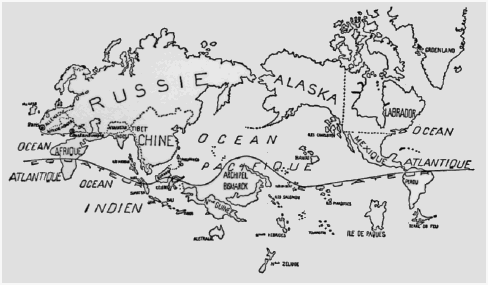
Wednesday 25th November 2015, 5.00pm
Room 105, University of Westminster, 32-38 Wells Street, London W1T 3UW
Inventing Maps: Towards a Geography of the Avant-Garde
Andreas Kramer (Goldsmiths), with a response by John Beck (IMCC)
This talk will explore how European avant-garde movements of the early twentieth century turned to geography to assert, validate and contest their artistic and political aims. The Italian Futurists famously claimed, in their founding manifesto of 1909, that ‘Time and space died yesterday’. Their claim signals the avant-garde’s desire to break with scientific conceptions of time and space; yet the issue of geographic location would persistently haunt the avant-garde’s emergence in various European cities and nations, just as the international dissemination of the avant-garde was framed by powerful, and sometimes strikingly original, geographical imaginations. Drawing on a range of examples from futurism, Dada and surrealism, this paper explores the visual and textual rhetoric of the map and mapping.
All welcome and entrance free. Non-Westminster guests can sign in at reception.
Followed by drinks in the Green Man…
Gothic Tourism out now
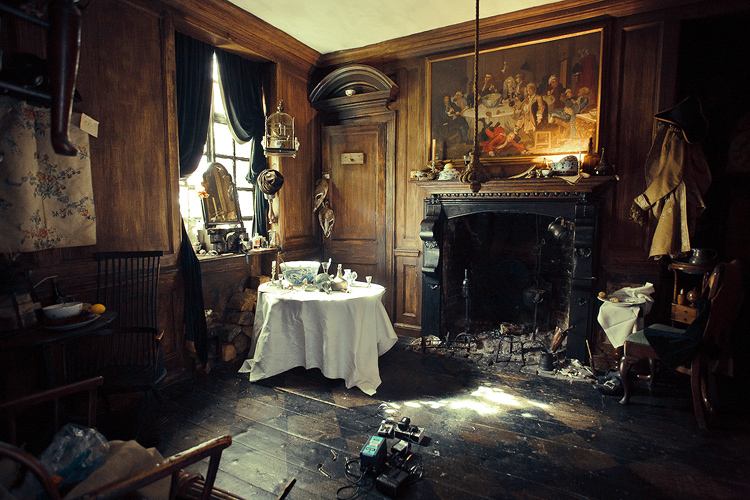
We are absolutely delighted to announce the publication of Emma McEvoy’s new book Gothic Tourism as part of the Palgrave Gothic series.
From Strawberry Hill to the London Dungeon, Alton Towers to Barnageddon, Gothic tourism is a fascinating and sometimes controversial subject. Senior Lecturer in English Literature at the University of Westminster, Emma McEvoy considers some of the origins of Gothic tourism and discusses Gothic itself as a touristic mode. Through studies of ghost walks, scare attractions, Dennis Severs’ House, Madame Tussaud’s, the Necrobus, castles, prison museums, phantasmagoria shows, the ‘Gothick’ design of Elizabeth Percy at Alnwick Castle, a party at Fonthill Abbey, and a poison garden, McEvoy examines Gothic tourism in relation to literature, film, folklore, heritage management, arts programming, and the ‘edutainment’ business.
Order up your copy here.

